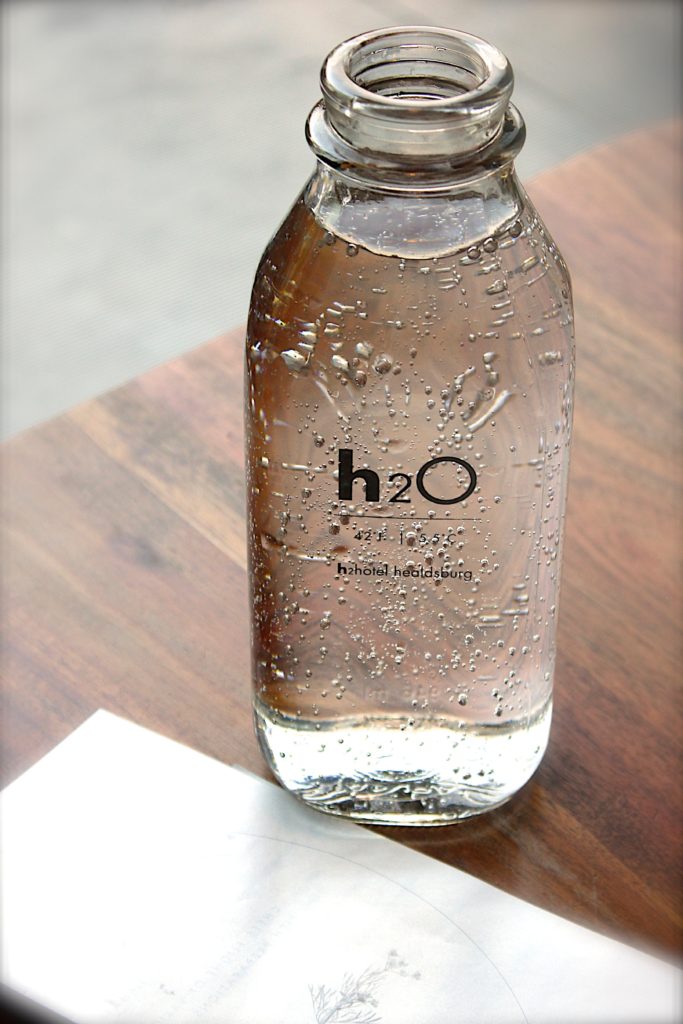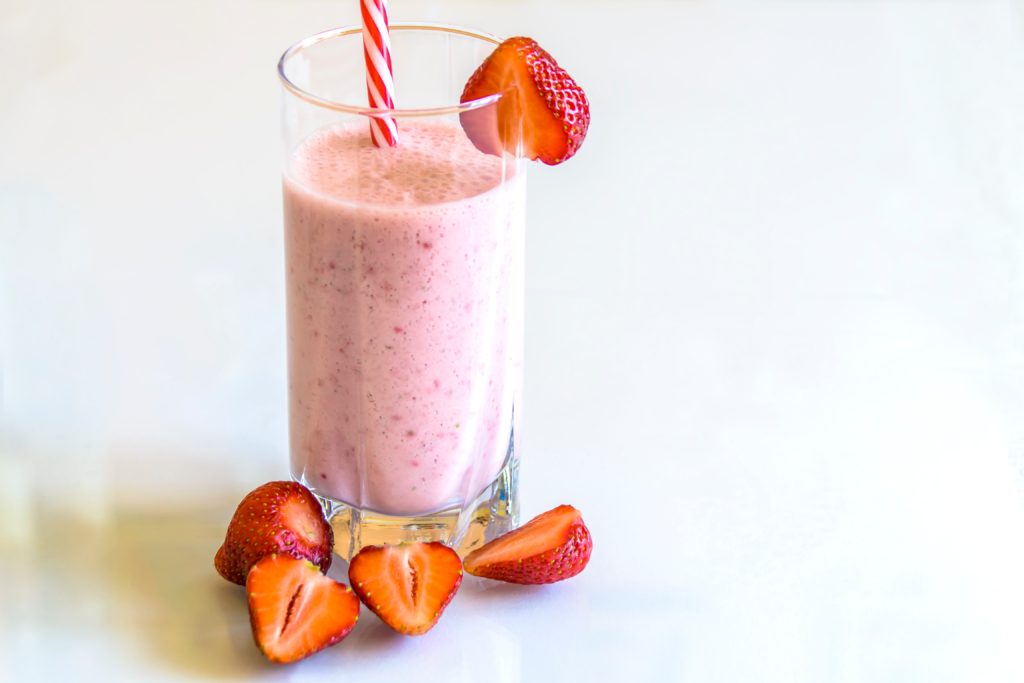Water is a notoriously recommended when anyone wants to have a heathier body.
“Drink more water!”
“Make sure you get 8 glasses per day!”
But why? Why is water so good for the body? Do we really need 8 cups per day? Can we drink too much? Do we wait to drink until we are thirsty? What happens when we don’t drink enough?
Let’s conquer these questions one at a time.
Why is water so good for us?
We all know the good ole H2O is good for us, but why is it so good?
- Water helps assist the growth of proteins, glycogen, and other molecules.
- Water initiates vital chemical reactions in our body without which performance suffers.
- The fluidity of water acts like a lubricant and shock absorber for the joints, brain, and spinal column.
- Water enhances mental clarity.
- Water is a temperature regulator through sweat and evaporation to maintain a safe body temp.
- Water can also contain essential minerals that our bodies need to function well (i.e. fluoride, calcium, magnesium, etc.).
- Our bodies are composed of about 60% water (depending on body composition). Muscle is roughly 72% water. Fat is only 5-10% water. Our muscles are able to function more optimally with proper hydration.
Do we really need 8 cups/day?
Simple answer… it’s a good rule of thumb.
There are numerous formulas available to calculate the amount of water we need to drink based on our body weight, height, climate, and activity level.
Here’s a simple formula:
intake 30-40 mL of H2O for every 1 kg of body weight.
Kg in body weight = body weight in pounds / 2.2
E.g. 185-pound person weighs 84 kg.
84 * 35 mL of water = 2940 mL per day (roughly 3 liters or 12 cups per day)
Interestingly, about 4-5 cups of water we need are derived from food (especially fruits and veggies). So, the more fruit and veggies we consume, the less water we need to drink.
Let’s be real, most of us aren’t going to stick to the exact number of fluid ounces we are “supposed to get” per day, at least not for extended periods.
So, let’s just start with 8 cups per day, but you may need more if you sweat profusely and/or exercise in hot climates.
Do you wait to drink until you are thirsty?
Well, this one is tricky. Some reports and studies suggest that waiting until we are thirsty to drink is too late – we are already dehydrated. However, new research suggests waiting until we are thirsty helps avoid hyponatremia – too much water compared to electrolytes (i.e. overhydration, more on this next) – and is generally acceptable for the greater population.
So, which is correct?
Depends. Dr. John Berardi of Precision Nutrition says, “thirst is sometimes a poor indicator of hydration status” because it doesn’t appear until about 1-2% of bodyweight is lost.
Since everyone has a unique body, habits, genetics, and activities, here are some considerations:
- You may want to drink more water than just when you are thirsty if:
- You sweat profusely
- You are highly active, especially in hot climates, you may want to drink before you are thirsty. However, be sure to add electrolytes (i.e. sodium, chloride, bicarbonate, potassium, magnesium) in a meal or drink before the session.
- Sometimes water alone does not suffice. If we intake only water, we may disturb the proper concentration of water vs. electrolytes. Drinking water with electrolytes will help maintain the desired hydration level. Post-workout nutrition – which is completed with recovery in mind – should include both water and electrolytes
- Veggies and fruits contain water. If you eat a moderate-high amount of fruits and veggies, then you don’t need to drink as much water. About 1/3 of our total water intake should come from food.
Waiting to drink until we are thirsty is otherwise acceptable.
Electrolytes
Hyponatremia is not common in the American society because of the plentiful availability of the sodium in our foods. However, overhydration is still possible depending on our diet and exercise level.
Hyponatremia can be caused by an increased anti-diuretic hormone (ADH), hypothyroidism, glucocorticoid deficiency, diuretic use, excessive thirst, congestive heart failure, liver cirrhosis, and kidney disorders.
Symptoms can include:
GI discomfort, nausea, vomiting, headache, swollen hands/feet, confusion, restlessness, and bloat.
Those who exercise in hot climates should not over-drink water. They should be careful to consume the proper balance of water and electrolytes
The body loves balance (equilibrium). Our bodies lose electrolytes in the same way we lose other fluids (sweat, feces, breathing, etc.). Have you ever noticed sweat is salty? This is mostly sodium excreted.
Especially with exercise, water and electrolyte loss will occur. Intaking adequate amounts of both will enhance recovery and restore hydration and equilibrium.

Pre-workout: pre-hydrate but don’t overhydrate. Intake about 2 cups of water. If you train in hot climates or sweat profusely, weigh yourself before training with minimal clothes.
During workout: drink moderately with some electrolytes
Post workout: replenish with water, electrolytes, carbs* and protein
A solution with about 8-10 oz. of water, 20-30 g carbs + 15-20 g protein (depending on the size of individual and intensity of the workout) should suffice.
However, if you sweated liberally, weigh yourself again and drink enough to return to about 10% of what you lost.
*Many carb sources have electrolytes and promote water retention. A healthy simple carb will absorb faster and quickly initiate the recovery process (e.g. fruit).

What happens when we don’t drink enough?
Everything is compromised! Stress!
Learn how to Cope with Stress!
From Precision Nutrition:
Percentage of body weight lost & consequences
| .5% | Increased strain on the heart |
| 1% | Reduced aerobic endurance |
| 3% | Reduced muscular endurance |
| 4% | Reduced muscle strength & motor skills, heat cramps |
| 5% | Heat exhaustion, cramping, fatigue, mental fog |
| 6% | Physical exhaustion, heatstroke, coma |
| 10-20% | Death |
Other considerations:
Our urine does NOT have to be perfectly clear. Slightly yellow is preferred. A healthy human kidney should be able to process and excrete up to 10 liters of water per day.
The kidneys are not immediately adaptable. When we first integrate higher amounts of water into our system, it will take 1-2 weeks for the kidneys to adjust. Thus, you may be a frequent flyer to the restroom at first, but this should subside.
Here are some tips and tricks to increase and enhance your water intake:
- Eat more veggies and fruit
- Water is plain, so add some flavor:
- infused water
- BCAAs w/ electrolyte powder. However, try to avoid adding sugar and artificial sweeteners for the sake of adding water
- Calorie-free teas
- Set up reminders to drink until you have developed the habit (i.e. with a smartwatch or cell phone)
- Get a new water bottle and do so occasionally. E.g. every time I get a new bottle, I notice I drink more.
- Set a daily H2O goal.
- Drink water instead of soda
- Order it at restaurants. Plus, this will save money.
- Whenever you feel hungry, first drink some water, then wait 10 mins. Sometimes, hunger can be confused with thirst. If you are still hungry after 10-mins, then eat.
Be aware of hidden calories in your drinks!
Drinkable calories can easily sneak up on you.
Sweet tea, soda, coffee creamer/sugar, sports drinks, alcohol, fruit juices, etc.
Look at every nutrition label on your drinks for the next few days. This may enlighten you!
And, don’t be fooled by diet drinks. This subject is covered in another lesson.

2 thoughts on “Drink more water”
Comments are closed.